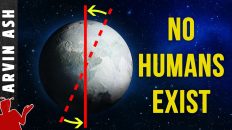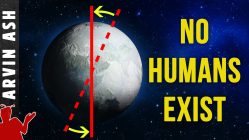Do Aliens exist? And Where are they? Fermi Paradox: #arealiensreal #doaliensexist
When you look up into the night sky, do you ever think about what else is out there? Do you wonder whether another being like you on a distant planet in another galaxy may be looking back at you?
You probably already know that there are more stars in the universe than all the sands on all the beaches of earth. In fact there are 10 times more stars than all the grains of sand here on earth. The number is almost an almost incomprehensible – a 7 followed by 22 zeros.
And the latest data from the Keppler space telescope shows that there are planets around nearly every star. In fact, Keppler data shows that just within our own Milky Way galaxy, which is only one of a trillion other galaxies in the universe, there may be 10 billion earth-size planets orbiting sun-like stars in the habitable zone of its solar system.
Physicist Enrico Fermi, in the 1950’s, asked why, given the vast number of potential planets with life, haven’t we been contacted by aliens yet?
This is a profound question, the answer to which is not only mind blowing but also pretty scary. What is going on? The answer is coming up right now.
Fermi reasoned that any civilization with “a modest amount of rocket technology and an immodest amount of imperial incentive” could colonize the galaxy by building AI robot probes that could self-replicate as they journeyed beyond their home planet.
Even though the distances between habitable planets are much too vast to be traversed in a human lifetime, the theoretical robots would have had millions or even billions of years to make the journey.
And given the age of the universe, an intelligent species could have evolved 10’s of millions of years before us. If so, some should have conquered an entire galaxy by this time, and we should be able to detect that.
This seems to be a reasonable assessment because when our instruments look out into the universe, we can see that the materials and conditions for life that are present here on earth,
like light, water, organic compounds, gases such as oxygen, carbon, nitrogen, etc. can be found pretty much everywhere in the universe.
This would have you believe that life should be abundant in the universe. And most scientists think that life is probably present on many other planets.
But the fact is that our instruments can see no evidence from all our observations of any tell-tale signs of intelligent life anywhere in our solar system, our galaxy or the rest of the observable universe.
Why is this so? What is going on?
In order to detect the kind of signal that Fermi was talking about, even though life may be abundant, the mere presence of life is not enough.
That life also has to be super intelligent…One that sends out electromagnetic signals in the form of radio and television waves into the heavens.
And in order for us to detect intelligent life on other galaxies, that species would have to be a space colonizing species, which would leave tell-tale signs such as huge amounts of radio signals, or signs of huge energy consumption.
Such a galaxy should light up unnaturally, like a Christmas tree.
So even having intelligent beings on a planet is not enough, because for example, many intelligent beings have evolved on earth before, like whales, dolphins, parrots, dogs, even dinosaurs like Troodon, which lived 65 million years ago were quite intelligent.
But super intelligence – space-faring species, like us humans, only evolved only once over 4 billion year on earth.
So the biggest question is “how rare is super intelligence?”
The Observation selection effect creates a bias in our thinking because no matter how unlikely superintelligence in the universe is, because it has happened here on earth, we are biased to think that it should be easy and can happen anywhere, no matter how unlikely it actually is.
In other words, even if the odds of a superintelligence emerging on a planet is 1 in one quadrillion planets, we are going to indeed find ourselves on that one in a quadrillionth planet where this improbable event occurred.
So Just because life evolved on earth, the one data point we have, it tells us very little about the probability of life elsewhere…until we can get at least one other data point.
The leap to the superintelligence of us humans, has only happened once.
And even this it seems may have happened due to the confluence of many unlikely coincidences.
There are several features of our evolution that makes it reasonable to assume that we got here due to extreme circumstances.
For example going from simple single cell bacteria to complex organelle-containing cells from which all complex animal life came took about 1.5 billion years on earth to evolve.
This shows that a huge number of random trials and errors probably occurred over 1.5 billion years before resulting in a few cells getting lucky. They were perhaps spontaneously able to either incorporate other cells into themselves, or mutate huge beneficial features.
But maybe that 1.5 billion year time frame is very short in the scheme of things.
Maybe the natural progression of such an evolutionary leap is on the order of 20 bilion or more years…more than the lifetime of the universe.
This is something we just don’t know.
In addition, Humans, the only super intelligent being to evolve on earth have only been around for the past 250 thousand years, which is a miniscule nothing in the 4 billion year history of life on earth.
And there are a myriad of possibilities that could have prevented our evolution. I talk more about this in another video.
All indications are that life is not so easy to come by.
Is intelligence an evolutionary imperative? It may be, if for no other reason than the fact that intelligence has evolved multiple times on earth.
But superintelligence, that is intelligence that leads to the colonization of space does not appear to be so.
There is no evolutionary reason for life forms to be a space colonizing species. There is no impending threat to the earth that we know of currently that threatens our survival.
There is nothing that space colonization does to our species to help us eat or reproduce better.
Are there physical laws that inevitably cause intelligence to be selected naturally? That is, given lots of different life forms, is it inevitable that the most intelligent life forms will dominate the planet over time?
Yes, that may be the case.
But we don’t seem to have evidence that this intelligent life form will continue to evolve into a super intelligent life form like we did.
It is likely that earth is indeed a very very precious and special place, and that should scare anybody that thinks we can abuse it.
We can look at the fermi paradox mathematically. The Drake Equation, created by Frank Drake in 1961, shows the many variables used to estimate the number of active extraterrestrial civilizations in the milky way galaxy.
N = R Fp Ne Fl Fi Fc L
R= average rate of star formation in our galaxy
Fp = fraction of those stars that have planets
Ne = avg number of planets that can support life per star that has planets
Fl = Fraction of planets that can support life that actually develop life
Fi = fraction of planets with life that go on to develop super-intelligent life
Fc = fraction of civilizations that develop a technology that release detectable signs into space
L = length of time that such civilizations release detectable signs into space
With the latest data, we can estimate the first three variables with a good degree of accuracy, and estimate some of the others, but the F sub i – the fraction of planets with super-intelligence, is an utter guess, and by all indications may be an extremely small number.
We know that F sub P, the fraction of stars with planets is large, nearly 1, but our failure to detect intelligent life tells us that there may be a filter or several filters that prevents super intelligent life from emerging.
There is a possibility that there is a great filter between where we are now and the beginning of earth.
Or there is a great filter between where we are now and some event in the future that prevents intelligent life from colonizing the galaxy.
This is why finding life on one of the other planets in our solar system would spell doom for us. Why? Because Finding a life form that evolved independently of earth on a planet in our own solar system, would mean that life is likely very easy to evolve.
This would mean that the probability of the great filter being in our future is much more likely than that filter being in the past.
This would mean that we are probably staring straight down into the barrel of the gun that is about to fire in our face. The great filter – would be an event that is likely to spell the death of our civilization and technology. So let’s hope that there is no other life on our own solar system.
But getting back to the question posed by Fermi – why haven’t aliens contacted us.
There are theorists that say that aliens have already visited us but we were not interesting enough to bother with, or that we are not evolved enough to contact, or that aliens are keeping us like in a zoo and have conspired to make us unaware of it.
Although none of these are illogical possibilities, they seem to be more concoctions of our imagination than likely possibilities.
They seem to be complicated answers to a simple question.
The evidence points to super intelligence rarity than any kind of potential conspiracy by other races to keep us out of the loop.
And besides, even if they were keeping us out of the loop, it’s not like we are passively waiting for the phone to ring. We are actively seeking the technological signatures of other advanced civilizations, which we would detect regardless.
The simplest explanation is that Intelligent life is very difficult to evolve. It fits all the evidence.
But given the size of the universe, even if life is extremely rare, it can still be abundant.
…perhaps the most humbling part is that even though many intelligent life forms may be present in our universe, they are so far away, that we may continue to look up at them, and they look back at us for thousands and thousands of years…and yet we may never meet or get a chance to know each other.







